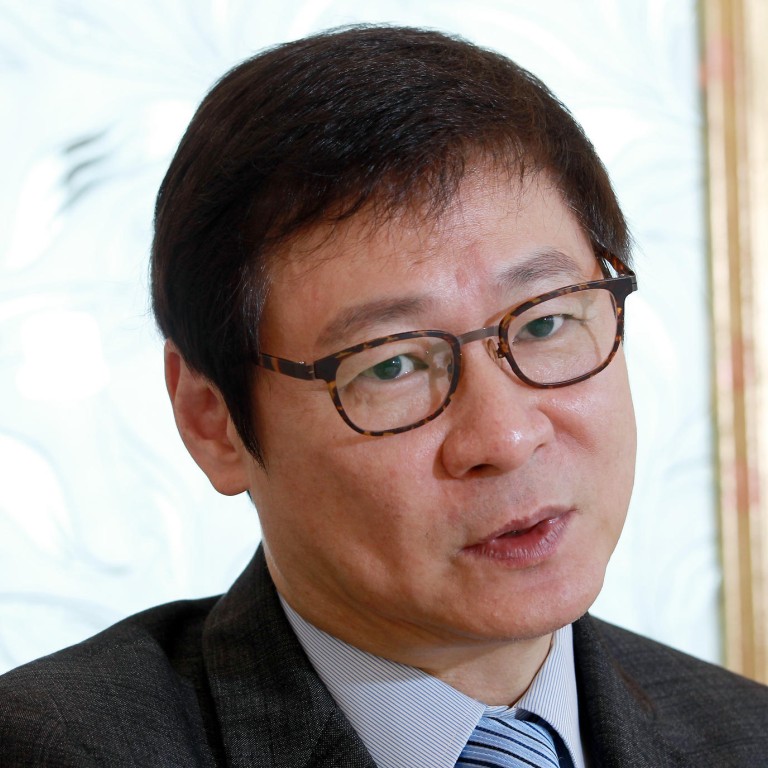
New | Small developer Paliburg finds it difficult to replenish land bank
More sites are being released by the government but that doesn't make it easier for a small developer to land a winning bid, says Paliburg chief operating officer Donald Fan Tung
Despite an increase in the number of sites offered for public sale by the government since the Leung Chun-ying administration took office in 2012, Paliburg Holdings executive director and chief operating officer Donald Fan Tung does not feel the company has a higher chance of winning land sites.
Since joining Paliburg in 1981, Fan has witnessed dramatic changes in the city's property market - from a handful of Hong Kong big developers to a more crowded battlefield with the arrival of the mainland's property giants.
It is hard. In the era of Donald Tsang Yam-keung's administration, we did not have a chance to buy land as the government suspended land sales in 2002. We witnessed more sites offered for sale when Leung Chun-ying took office. The government has been offering smaller sites allowing small players to bid. As a result, we see more chances to bid - but not to win.
Competition is very keen. Giant Hong Kong and mainland developers submit bids for both big and small sites.
Meanwhile, the land sale system by tender is not good. When dozens of developers submit bids, you do not know how to set the bidding price. If a giant mainland developer wants to establish a presence in Hong Kong, they will pay a big premium on the market value to win the site. I prefer land sales through auction. We can have an idea what prices your rivals are offering during the bidding process.
It is really hard to replenish our land bank. We will also look for buying opportunities from the private market. To increase income, we have recurrent income from hotel investments. Paliburg has formed a joint venture with its subsidiary Regal Hotels International to develop projects. Last week, we won a bid from the Urban Renewal Authority to develop a hotel site in Tai Kok Tsui. The project, covering 7,803 square feet, will provide 200 hotel rooms. Including this one, we have six hotels under the brand "iclub" in Hong Kong.
We will continue this strategy to bid for projects with Regal instead of teaming up with other developers.
It does not affect it seriously. Our hotels maintain a high occupancy of around 90 per cent.
But the anti-parallel trade protests in April seriously hurt Hong Kong's image and reputation as a tourist city. It's hard to support anyone kicking down visitors on the street. I hope the image of Hong Kong as a tourism city can be restored in six months.
Construction costs are really high. You may not believe it, but the average is around HK$4,500 to HK$5,000 per square foot. The shortage of skilled labour and high material costs are the reasons.
Experienced construction workers are aged over 50 on average. A project they used to finish in four days now needs eight days. That boosts the costs.
Investors skimming profits from a bull run in the Hong Kong stock market supports the property market. Those people have made a lot of money from the recent market boom, you cannot imagine how much they have earned. And some of their gains will shift to properties.
Mass housing and luxury properties valued at HK$30 million or higher will be welcomed by buyers. Upgraders will find it difficult to buy large flats because of the heavy stamp duties imposed by the government since 2012.
Prices will not go up further when they reach beyond the levels these people can afford, say HK$15,000 to HK$16,000 per square foot or a unit price of HK$4.5 million to HK$5 million. Developers can build a flat as small as 180 sq ft in a way to make a smaller lump sum to meet buyers' purchasing power. But buyers will not feel comfortable to live in a flat smaller than 250 sq ft.
I wanted my son to take up Thai boxing for health benefits a few years ago. I accompanied him to take up the sport. Eventually he was not interested in it and quit. He prefers Western boxing and he is doing quite good so far in the US. His coach suggests he takes open competition. I have continued with Thai boxing for overall health and to get rid of belly fat. I am now on a diet to prepare for a coming tournament.

